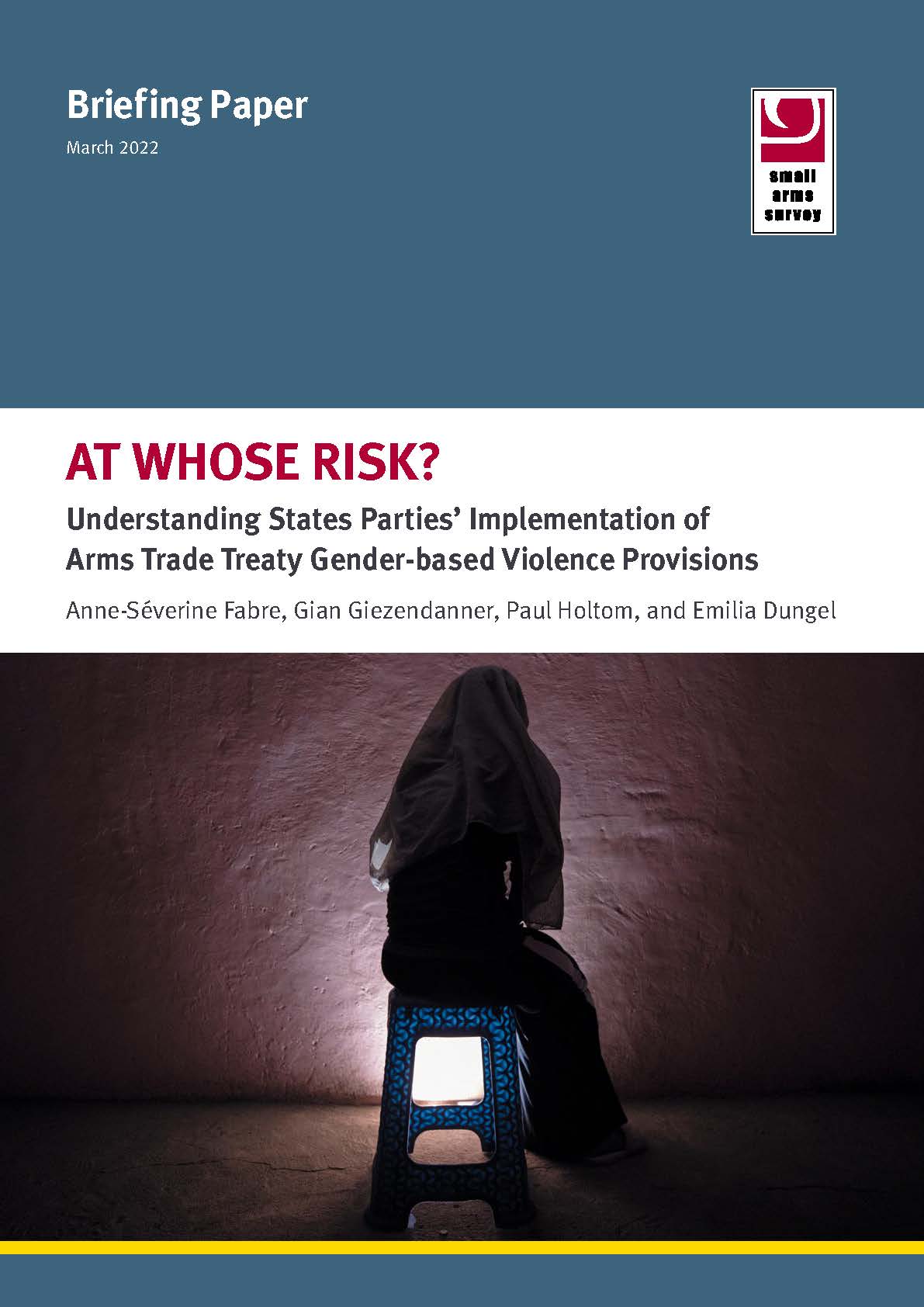
New Briefing Paper on the implementation of gender-based violence (GBV) provisions in the Arms Trade Treaty (ATT)
GENEVA—The Arms Trade Treaty (ATT) is the first legally binding agreement linking international conventional arms transfers to gender-based violence (GBV), but there has been limited practical application of these specific provisions to date, finds a new study from the Small Arms Survey.
At Whose Risk? Understanding States Parties’ Implementation of Arms Trade Treaty Gender-based Violence Provisions sets out to gain insight into how ATT states parties apply Article 7(4)—the main provision related to GBV—by focusing on the work of the export licensing officers carrying out this task. Specifically, the Briefing Paper contextualizes GBV in the ATT context; presents implementation guidance; and reviews recommended open-source resources for carrying out risk assessments. Finally, after analyzing reported implementation practices of ten ATT states parties, the study offers policy observations related to continued work to tackle GBV within the ATT context.
Among other findings, the paper reveals that most ATT states parties interpret Article 7(4) in terms of the broader offences related to international humanitarian law and international human rights law listed under Article 7(1). Further, the study finds that the existing recommended evidence base on GBV is often scattered and unstandardized; rarely providing the type of information required by export licensing officers to conduct GBV-focused risk assessments. Finally, at the time of writing, no ATT state party had publicly indicated that it had denied an export authorization specifically due to risk of the conventional arms being used to commit or facilitate serious acts of GBV.
For more, check out our Resource Library: